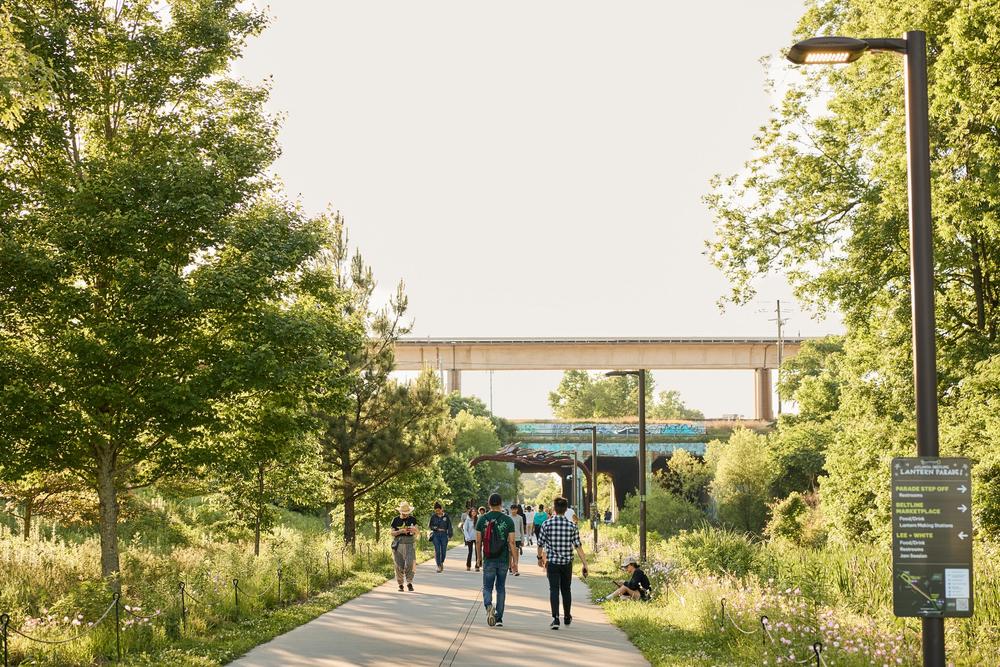
Caption
The Atlanta City Council passed legislation to ban data centers along the Atlanta Beltline to prioritize space for residential use.
Credit: Atlanta Beltline/Facebook

The Atlanta City Council passed legislation to ban data centers along the Atlanta Beltline to prioritize space for residential use.
The Atlanta City Council voted Tuesday, Sept. 3, to ban data centers along and near the Atlanta BeltLine and within a half-mile of MARTA stations.
The new legislation aims to preserve new residential and mixed-use developments, trails and green space along the 22-mile BeltLine trail loop encircling the city’s urban core. The council also wants to make sure the BeltLine remains focused on building more affordable housing and providing a safe space for pedestrians, cyclists and others in non-vehicular modes of transportation.
“This legislation has set Atlanta apart from other cities across the country in that we’re looking to make some changes in how we treat data centers in our urban core,” said Councilmember Jason Dozier at Tuesday’s meeting. He and Councilmember Matt Westmoreland introduced the legislation earlier this year.
Companies such as Facebook, Microsoft and Amazon are investing in large data centers in metro Atlanta to handle their rising demand from online consumers. Between 2022 and 2023, data centers under construction in Atlanta increased 211%, making it one of the top cities in the country for new data centers.
From the first to the second half of 2023, the construction of data center projects “skyrocketed from over 235 megawatts to over 730 megawatts, equivalent to the output of a typical natural gas plant,” the legislation said.
Westmoreland and Dozier issued written statements after the meeting and said prohibiting new data centers near the Beltline and transit areas would “ensure that Atlanta’s growth is balanced, sustainable and centered on the well-being of residents.”
“This legislation reflects our commitment to preserving the unique character of our neighborhoods, protecting our environment, and ensuring that our city’s development prioritizes the needs of the people who live and work here,” Westmoreland said.
The legislation banning the centers near the BeltLine also notes that the next phases of development along the corridor will occur in predominantly Black, brown, and low-income neighborhoods. These neighborhoods are historically the most impacted by environmental pollution due to the development of interstates and the proximity of landfills.
“Atlanta’s data center market is one of the fastest growing in the nation. While this growth underscores Atlanta’s emergence as a major player in the data center ecosystem, it also raises serious concerns about the impact on our urban environment and essential infrastructure,” Dozier said.
This story comes to GPB through a reporting partnership with Rough Draft Atlanta.